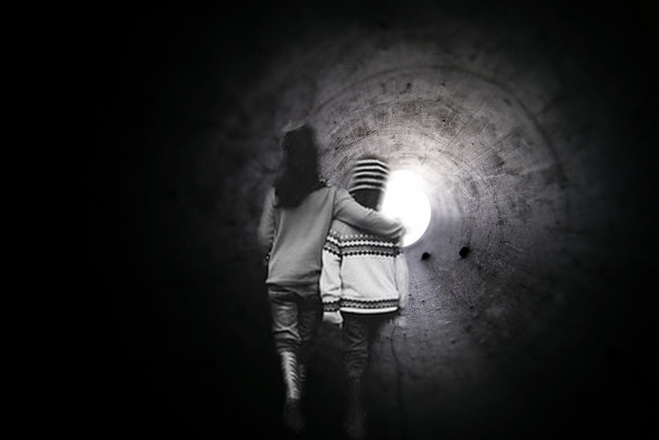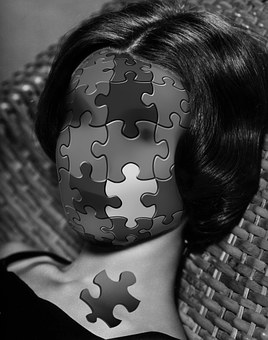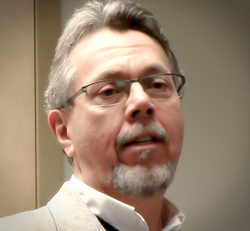|
0 Comments
 By now, you may have read about the North Carolina judge who volunteered to serve a 24-hour jail sentence beside a veteran suffering from PTSD and who received multiple DUI citations. It is striking when one human goes out of his way to help another; especially to help a stranger. When asked why he did it, the judge recounts a story he read about a soldier with PTSD in a hole and how family and friends tried to help by throwing him a rope. But the soldier wasn’t saved until a fellow veteran jumped into the hole and told him “I’m here to climb out with you.” I think this story resonates with me because I am as guilty as the next person in offering others my help but only doing enough to say that I tried. I don’t find myself jumping into many holes for others and proclaiming that I’m going to stay until we both climb out together. Unfortunately, it feels like we are moving further away from each other as a society and we are more inclined to look away than we are to offer true assistance to someone in need. The issues we face as a nation are significant and they are complicated by the fact that we are increasingly becoming a people divided along political, racial and economic lines. The burning question is how do we heal the divide. Because unless we can do that – all of our other problems such as poverty, climate change, violence, income disparity and education will only serve to widen the chasms keeping us apart. Until we can see each other as valued human beings we will continue to be defined by our differences and be less inclined to embrace what we have in common. A Quaker friend of mine – George – offers a unique solution. When George was asked how he can remain so calm and understanding when chairing a large and contentious meeting he smiled and offered this simple answer. George said “I keep a note card in my shirt pocket. When things get tense I take the card out and read it to myself. And on the card is a simple phrase: I love everyone here.” It is interesting that most major religions have some version of the golden rule as espoused by George: love God and love your neighbor as yourself. It is pretty clear that we are called to heal and not to divide, to be“breach menders” as we travel the path of our lives together. Maybe we all should begin carrying around a note card saying that we love everyone here. And then, when one of our fellow travelers falls into a hole, we may be more inclined to jump in and offer to climb out together than to simply throw down a rope and let them fend for themselves. I never imagined when I picked up this little book that it would have such an impact on me. The book is written by Henri Nouwen and it is entitled Can You Drink the Cup? Nouwen’s message is simple yet profound. We must embrace our lives for what they are: a gift from God. And, we must use our lives as a gift to others. Finally, we must trust that God speaks to and through us and if we are truly following our call, we will be given all that we need when we need it. At the end of this essay, I have provided a few of the quotes from Nouwen’s book. For whatever reason, this book had a profound effect on me. Maybe because it was speaking to issues and themes that I have already been thinking about. I found this book to be in sync with my personal mission statement; one written several years ago. It is: • Listen Deeply • Act Justly • Trust God I am occasionally successful at following this mission statement. I do try to remind myself to listen deeply when others are talking; especially when they are seeking advice or my input. I sometimes have to catch myself as I pretend to listen but am really formulating what I want to say. I’m still a work in progress. I’m also a work in progress in trusting God. Yes – theoretically I trust God, but I also do a fair amount of worrying. If worry were a prayer – then God and I would be on speed dial. But I believe that worry is really a lack of faith; in God and in my own ability to respond to whatever is the issue at hand. Worry is really about control. When I can’t control an outcome – I tend to “worry it” to my own distraction. I aspire to be the person Nouwen urges us to embrace, but I’m not quite there yet. At least not all the time. Well maybe not even most of the time. But I’m OK with that. I once had a college philosophy professor who, when asked “how are you doing?” he would answered “Hopefully incomplete.” That describes me pretty well. I’m hopeful, but incomplete. Here is a hopeful – but incomplete list of my favorite quotes from the book; Can You Drink the Cup? “True sanctity is precisely drinking our own cup and trusting that by thus fully claiming our own irreplaceable journey, we can become a source of hope for many.” “We can choose to drink the cup of our life with the deep conviction that by drinking it we will find our true freedom.” “…Stand in the world with our head erect, solidly rooted in the knowledge of who we are, facing the reality that surrounds us and responding to it from our hearts.” “Sin makes us want to create our own lives according to our own desires and wishes, ignoring the cup that is given to us. Sin makes us self-indulgent.” “The one who has called us ‘the beloved’ even before we were born, is filling (our cup) with everlasting life.” “We must first claim ourselves as a gift from God.” “When we start living our life as entertainment, we start losing touch with our souls and become little more than spectators in a lifelong show.” “Living the spiritual life is living a life in which the holy spirit will guide us and give us the strength and courage to keep saying ‘yes’ to the great question.” “Drinking the cup is an act of selfless love, an act of immense trust, an act of surrender to God who will give what we need, when we need it.” |
AuthorMichael Soika has been a community activist for more than 30 years working on issues of social and economic justice. His work for justice is anchored by his spiritual formation first as a Catholic and now as a Quaker. Archives
June 2018
Categories |



 RSS Feed
RSS Feed